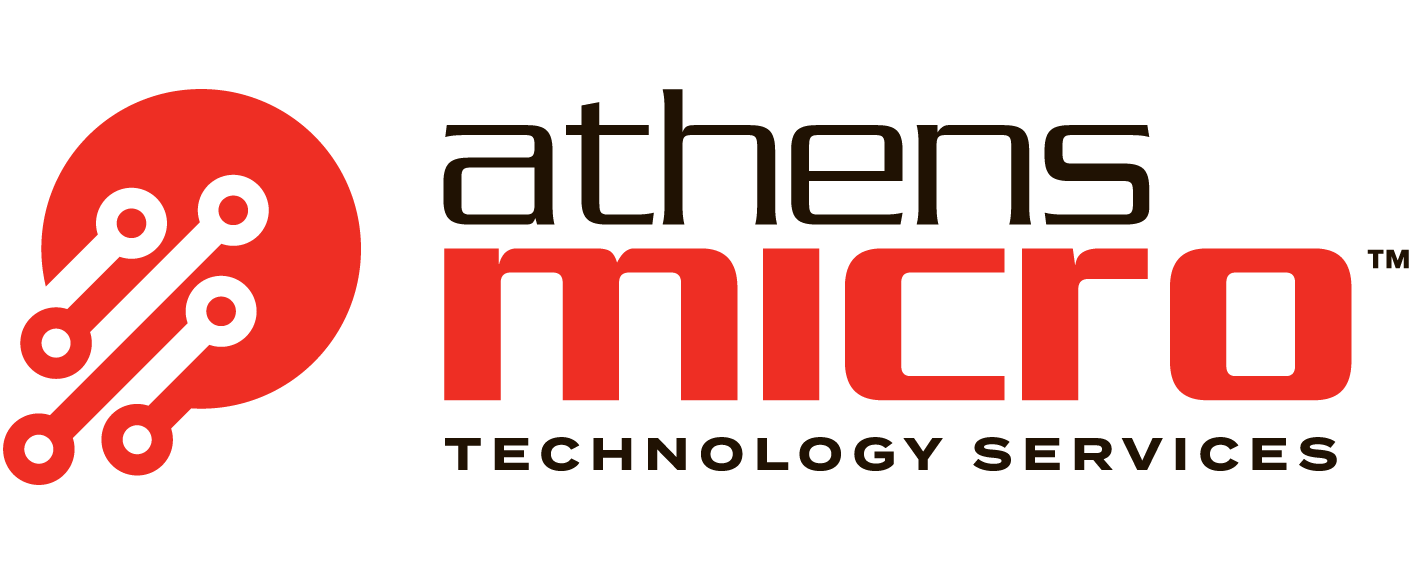Cyber Threats Are on the Rise—Is Your Remote Workforce Protected?
In today’s digital-first world, remote work has become the norm. While employees enjoy the flexibility, cybercriminals see an opportunity. Cyber threats targeting remote teams have surged, with phishing scams, ransomware, and data breaches becoming major concerns. Without the right security measures, businesses risk financial loss, reputational damage, and operational downtime.
As a leading IT support company, Athens Micro helps businesses secure their remote workforce with proven cybersecurity strategies. Whether you’re a small business owner or a growing enterprise, protecting remote employees should be a top priority.
In this guide, we’ll cover five key strategies to keep remote teams secure, ensuring that sensitive business data remains protected from evolving online threats.
1. Implement Strong Identity and Access Management (IAM)
Multi-Factor Authentication (MFA) as a Security Essential
One of the most effective ways to secure a remote workforce is by requiring multi-factor authentication (MFA). Passwords alone are no longer enough—MFA adds an extra layer of protection by requiring a second form of verification, such as a fingerprint scan or a one-time code sent to a trusted device.
This prevents unauthorized access, even if a hacker obtains an employee’s login credentials. Managed IT Services for small businesses often include MFA implementation to ensure secure remote access.
Role-Based Access Control (RBAC) for Data Protection
Not every employee needs access to all company data. Role-Based Access Control (RBAC) limits access based on job responsibilities, reducing the risk of internal threats or accidental data exposure. An IT consultant can help set up permissions to ensure employees only access what they need for their roles.
2. Secure Home and Public Networks
Enforcing VPN Usage for Remote Employees
Public and home Wi-Fi networks are prime targets for cybercriminals. A Virtual Private Network (VPN) encrypts internet traffic, ensuring that sensitive business information stays protected—even when employees work from coffee shops, hotels, or shared workspaces.
Companies offering hospitality IT solutions often require employees to use a VPN when accessing guest networks to prevent unauthorized interception of data.
Home Network Security Best Practices
Employees should also secure their home Wi-Fi networks by:
- Changing default router passwords
- Enabling WPA3 encryption for stronger security
- Regularly updating firmware to patch vulnerabilities
A computer consultant can provide guidelines for remote workers to follow, ensuring their home networks remain protected against cyber threats.
3. Strengthen Endpoint Security with Managed IT Services
Deploying Endpoint Detection and Response (EDR) Solutions
Every laptop, tablet, and smartphone used by remote employees is a potential entry point for cyber threats. Endpoint Detection and Response (EDR) solutions provide real-time monitoring and automated responses to security incidents, preventing malware from spreading across the network.
Businesses investing in managed IT services for small businesses gain access to enterprise-grade security tools that detect and neutralize threats before they cause damage.
Regular Security Patching and Software Updates
Cybercriminals exploit outdated software to launch attacks. A healthcare IT consulting firm, for example, ensures that medical systems receive regular security patches to comply with HIPAA regulations. Similarly, businesses should:
- Enable automatic updates for operating systems and software
- Regularly review and update security policies
- Work with IT consultants to manage endpoint security at scale
4. Educate Employees on Cybersecurity Best Practices
Phishing Awareness and Email Security Training
Phishing scams are responsible for 91% of cyberattacks, making email security training essential. Employees should be able to recognize red flags, such as suspicious links, requests for sensitive data, or unusual sender addresses.
Small business IT support providers often conduct security awareness training, ensuring employees stay alert to phishing attempts and social engineering tactics.
Creating a Cybersecurity Culture in Remote Teams
Security is a shared responsibility. Encouraging employees to follow best practices—such as using strong passwords, locking screens when away, and reporting suspicious activity—strengthens the overall security posture of a business.
5. Implement Data Backup and Disaster Recovery Plans
Cloud-Based Backup Solutions for Business Continuity
Data loss can be catastrophic for any business. Using cloud-based backup solutions ensures that company data is automatically saved and can be quickly restored in case of accidental deletion, ransomware attacks, or hardware failures.
A hospitality IT services provider, for example, may implement cloud backups to protect hotel booking systems, ensuring uninterrupted service for guests.
Developing an Incident Response Plan
No system is 100% secure. Having a disaster recovery plan in place minimizes downtime and ensures that businesses can recover quickly after a cyber incident. IT consultants assist in designing response plans that include:
- Immediate steps for containing security breaches
- Data recovery procedures to restore lost files
- Communication protocols for notifying affected parties
How Athens Micro Can Help Protect Your Remote Workforce
Cyber threats will continue to evolve, making proactive security a must for remote teams. At Athens Micro, we specialize in securing businesses with Managed IT Services, cybersecurity training, and custom IT solutions tailored to remote workforces. Whether you need hospitality IT solutions, healthcare IT consulting, or small business IT support, our experts are ready to help.
Don’t wait for a security breach—take action today to safeguard your remote workforce.
Leveraging AI and Automation for Cybersecurity
How AI Enhances Threat Detection
Cyber threats are constantly evolving, making it difficult for businesses to keep up. Artificial intelligence (AI) and machine learning can analyze patterns and detect anomalies in real-time, allowing for faster identification of suspicious activity. Many managed IT services for small businesses now incorporate AI-driven security tools that can automatically block threats before they cause harm.
AI-driven security can help businesses:
- Identify unusual login patterns that could indicate unauthorized access
- Detect and block malware in real-time
- Reduce false positives in cybersecurity monitoring
Automating Security Policies for Remote Teams
Consistent security enforcement across remote teams can be a challenge. Automating security policies ensures that all devices, applications, and access points follow the same security protocols. IT consultants can configure:
- Automated security updates to keep software protected
- Conditional access policies that restrict logins from untrusted locations
- Device compliance checks to ensure that only secure devices access company networks
The Role of Zero Trust Security in Remote Work
Why Zero Trust is Essential for Remote Teams
Traditional security models assume that threats only exist outside the network. Zero Trust Security challenges this by requiring continuous authentication and verification, even for employees working within the organization. A computer consultant can help businesses shift to a Zero Trust framework to better protect remote teams.
Key Zero Trust principles include:
- Least privilege access – Employees only get access to the data they need
- Continuous authentication – Systems verify user identity throughout a session, not just at login
- Micro-segmentation – Networks are divided into secure zones, preventing hackers from moving freely if they gain access
How Businesses Can Adopt a Zero Trust Approach
Many businesses are already using elements of Zero Trust without realizing it. By working with IT consultants, companies can build a stronger Zero Trust model by:
- Implementing multi-factor authentication (MFA) on all accounts
- Restricting access based on job roles and device security compliance
- Requiring encryption for all remote communications
Compliance and Regulatory Requirements for Remote Security
Meeting Industry-Specific Compliance Standards
Many industries have strict regulations regarding data security, and remote work introduces additional compliance challenges. Businesses in healthcare, finance, and legal sectors must ensure that remote teams comply with industry regulations such as:
- HIPAA for healthcare organizations
- PCI-DSS for businesses handling payment data
- GDPR & CCPA for businesses managing customer information
Working with a healthcare IT consulting firm or an IT support company helps ensure that compliance standards are met while maintaining strong cybersecurity practices.
Best Practices for Secure Remote Compliance
To remain compliant while supporting a remote workforce, businesses should:
- Implement secure access controls to limit data exposure
- Use encrypted communications to protect sensitive information
- Maintain detailed security logs for compliance audits
p: Companies that prioritize compliance not only avoid fines but also build trust with their customers by demonstrating a commitment to data security.
Ready to Strengthen Your Cybersecurity?
Protecting remote employees doesn’t have to be complicated. By implementing strong security measures, training employees, and working with a trusted IT support company, businesses can defend against cyber threats and ensure long-term success.
Get started today. Schedule a consultation with Athens Micro and take the first step toward a more secure remote workforce.

